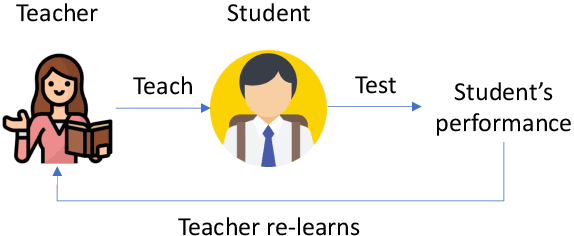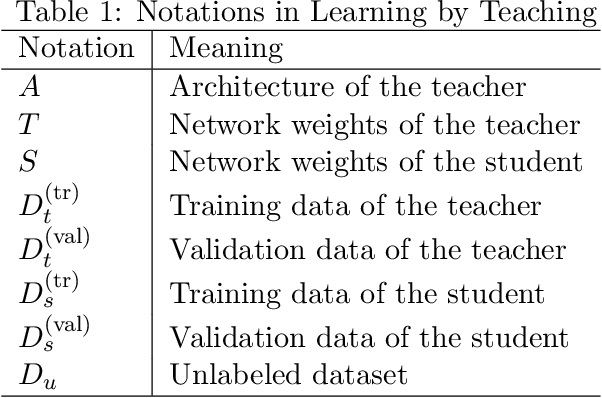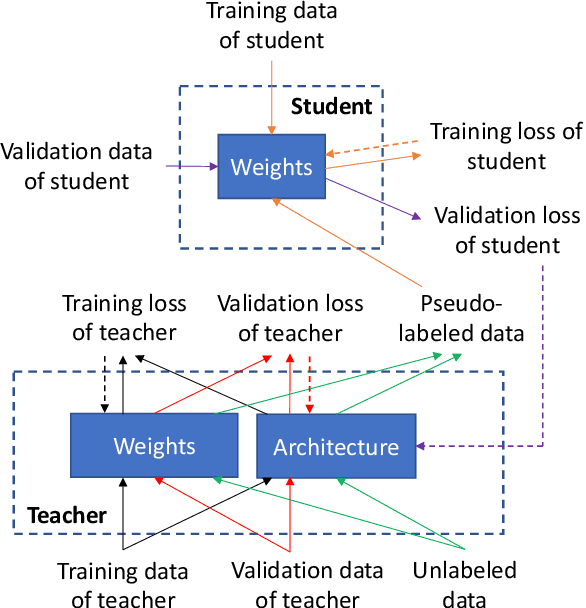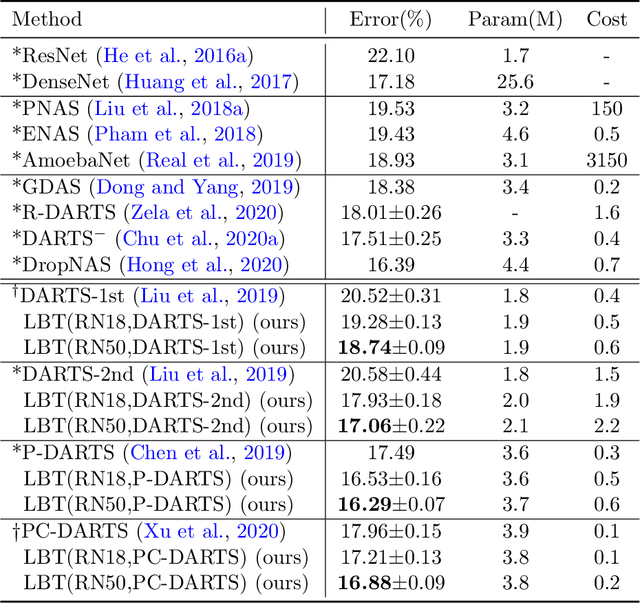Parth Sheth
Feasibility-Guided Fair Adaptive Offline Reinforcement Learning for Medicaid Care Management
Sep 11, 2025Abstract:We introduce Feasibility-Guided Fair Adaptive Reinforcement Learning (FG-FARL), an offline RL procedure that calibrates per-group safety thresholds to reduce harm while equalizing a chosen fairness target (coverage or harm) across protected subgroups. Using de-identified longitudinal trajectories from a Medicaid population health management program, we evaluate FG-FARL against behavior cloning (BC) and HACO (Hybrid Adaptive Conformal Offline RL; a global conformal safety baseline). We report off-policy value estimates with bootstrap 95% confidence intervals and subgroup disparity analyses with p-values. FG-FARL achieves comparable value to baselines while improving fairness metrics, demonstrating a practical path to safer and more equitable decision support.
Learning by Teaching, with Application to Neural Architecture Search
Mar 11, 2021



Abstract:In human learning, an effective skill in improving learning outcomes is learning by teaching: a learner deepens his/her understanding of a topic by teaching this topic to others. In this paper, we aim to borrow this teaching-driven learning methodology from humans and leverage it to train more performant machine learning models, by proposing a novel ML framework referred to as learning by teaching (LBT). In the LBT framework, a teacher model improves itself by teaching a student model to learn well. Specifically, the teacher creates a pseudo-labeled dataset and uses it to train a student model. Based on how the student performs on a validation dataset, the teacher re-learns its model and re-teaches the student until the student achieves great validation performance. Our framework is based on three-level optimization which contains three stages: teacher learns; teacher teaches student; teacher re-learns based on how well the student performs. A simple but efficient algorithm is developed to solve the three-level optimization problem. We apply LBT to search neural architectures on CIFAR-10, CIFAR-100, and ImageNet. The efficacy of our method is demonstrated in various experiments.
 Add to Chrome
Add to Chrome Add to Firefox
Add to Firefox Add to Edge
Add to Edge